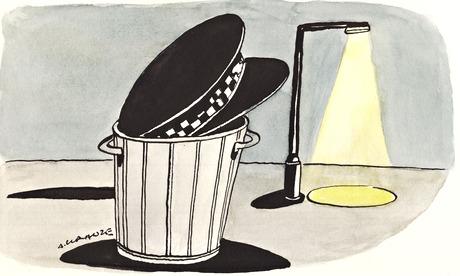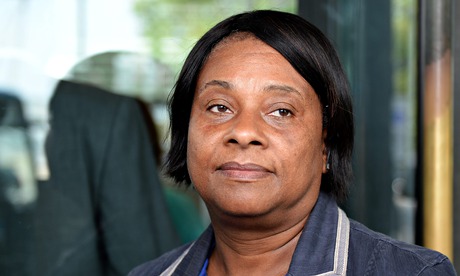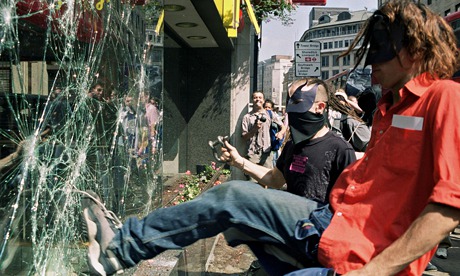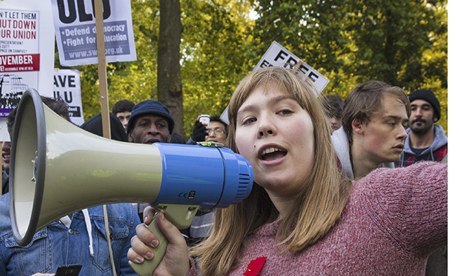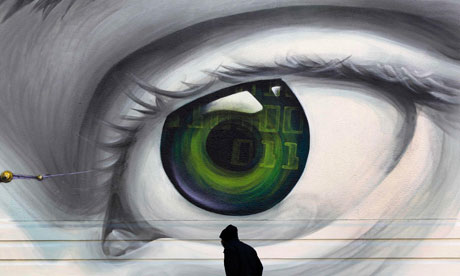Skewed growth is pushing the marginalised into the arms of waiting netas who turn them into tools of violence
The rape of a photojournalist in midtown Mumbai has revived public indignation and the debate that followed the brutal and barbaric rape of a young Delhi girl in December 2012. Amidst much hand-wringing and a rerun of inanities over national television, talking heads seem to have once again missed the central narrative — the rising tide of assorted violent acts, the political patronage (both explicit and implicit) that’s sponsoring it and how rape might be an integral part of this hostile environment. What’s more, the horrific incidents of rape continue unabated.
As India staggers from a semi-feudal society to one that’s embracing a strange (and hybrid) version of capitalism, violence in its myriad forms has emerged as the dominant template. The repertoire of violence has graduated from booth-capturing during elections to assassinating political opponents (including whistle-blowers), from vandalising art shows to rape and murder. And the culprits seem to be getting away each time. While the government continues to attract a large share of public censure for its inaction, the blame should ideally lie with the entire political class. It is this section of society, and the trajectory of its evolution, which seems to be strengthening the foundations of violence in our society. Every political party today — across all aisles and the entire spectrum — has to maintain a large army of warm bodies, described variously as “lumpen proletariats,” or “lumpens” or “the underclass,” for implementing its dirty tricks.
In simple terms, these are people thought to inhabit the space below the working class. Social scientists use the term to describe anybody who lives outside the pale of the formal wage-labour system. Disenfranchised and conventionally unemployable, political parties use these people to commit acts — most of which are outright criminal — to improve its own popularity and election prospects.
Becoming invincible
When utilised by political parties as the blunt edge of a bludgeon, this section of society acquires a modicum of invincibility. Given the large-scale subversion of the police force by politicians, lumpens have acquired a sense of daredevilry, a brazen approach to law and order. Immunity from arrests and indifference towards due process of law has invested them with a special feeling of invulnerability.
Some of this imperviousness is inevitable as criminals, or individuals with criminal accusations, become elected representatives themselves. This is a disease that afflicts all political parties. According to the Association for Democratic Reforms, 1,448 of India’s 4,835 MPs and State legislators have declared criminal cases against them. In fact, 641 of these 1,448 are facing serious charges like murder, rape and kidnapping.
The violence is also reflective of the pushing and jostling for elusive entitlements, a handmaiden of the stop-go model of development pursued by India. Asynchronous development of the economy and its institutions often lead to the privileged sections of society cornering disproportionate gains, resulting in discontent among the less fortunate. This then becomes a fertile hunting ground for political dividends. As the economy staggers through a new model of development without overhauling the outdated feudal structure — that still discriminates on the basis of caste, sex, class — missed opportunities and unrealised aspirations push many of the deprived into the arms of opportunist politicians.
Divested of education and employment opportunities, bereft of basic health facilities, exploited by the powerful and ignored by society, the underclass can only turn to political warlords for not only survival but to also actualise their dreams and aspirations. They become the shadow army, the heaving underbelly that the urban middle class doesn’t want to talk about.
Writing in the newspaper Business Standard, T.N. Ninan described the men behind the Delhi rape: “The men who raped and killed...have biographies that are starkly different. Their families may not have been from backgrounds vastly different from that of the girl’s father; they too were mostly one generation removed from villages in North Indian states. But they fell through the cracks in the Indian system — cracks that are so large that they are the system itself.”
To be sure, the combination of economic prosperity for a select few and abject poverty for large sections of the population is a guaranteed recipe for social combustion. When privilege, or nepotism, determines access to scarce resources, conflict is bound to erupt. Inequality, of any kind, remains the spring-well for all conflicts.
Violence is also a way of ensuring maintenance of this privilege. On the day of the Mumbai rape incident, a Shiv Sena MLA abused and threatened women employees of a toll booth in Maharashtra. About a fortnight ago, Shiv Sena and Maharashtra Navnirman Sena party workers beat up North Indian migrant workers in Kolhapur at random as a protest against the rape of a five-year-old allegedly by a labourer from Jharkhand. Not very long ago, a fringe, religio-political outfit in Mangalore, Karnataka, used the excuse of moral offence to inflict violence against young boys and girls. A senior police officer in Uttar Pradesh was shot dead — allegedly by associates of a local politician — when investigating a land dispute.
Police reforms
If these examples of violence seem random and arbitrary, here is the simple truth: if you can dream up any imaginary offence against any section of society, contemporary Indian political grammar gives you the licence to inflict violence against that segment. In the meantime, certain law officers and do-gooders wanting to eradicate rape and sexual crimes from society seem intent on examining the wrong end of a telescope: they are contemplating a ban on pornography.
What’s even more unfortunate is that the police look on helplessly, since their career progression is tied closely to the moods of political masters orchestrating these unorganised armies. Sometimes, they refuse to act even against political goons out of power because who knows what hand will be dealt during the next election.
There have been numerous suggestions and various committee reports on how to reform the police force. The Supreme Court in 2006 had also suggested seven measures to improve the police force. But like all other tough decisions, the government swept this too under the carpet. In addition, lack of proper investigation and poor documentation by the police often forces the judiciary to put criminals back on the streets even before you can say Amar-Akbar-Anthony. As a result, the fear of law ceases to exist.
Growing intolerance
Another form of violent behaviour is now finding sanction from political parties across ideological divides — a new-found love for banning painters, authors, film-makers, etc. Political parties find justifications for banning any art form, using hired goons — who have perhaps never been acquainted with the contentious piece of work — to vandalise and wreak havoc. Recently, supporters of a right wing party vandalised an art show in Ahmedabad for exhibiting works of Pakistani artists. A political party has to only utter indignant statements about any creative work and a ban is immediately enforced. Canada-based, Indian-born writer Rohinton Mistry’s award winning book Such a Long Journey was hurriedly removed from Mumbai University’s syllabus after similar protests. Violence takes many forms and unfortunately India has become home to most of these varieties: imported terrorism, domestic violence, female foeticide, armed insurgency, criminal activity, communal acts, oppression (of caste or gender), etc. While politics does have an indirect role in promoting domestic violence or some criminal activities, its fingerprints are all too visible in all the other forms of violence perpetrated in the country. It’s surprising that a country which gained independence from colonial powers through the instrument of non-violence should today exhibit such a preponderance of violence in its daily life.
But what is baffling is how, increasingly, rape is committed without any fear of legal reprisal or the extent of punishment that might be meted out. Sample the West Bengal government’s reluctance to prosecute party workers accused of rape. It is therefore not surprising that increasing incidents of mindless violence and sexual assaults are being reported from across the country. Judicial commissions and committees are slowly drawing attention to this aberrant social phenomenon: political sanction for violence.
Verma report
The Justice Verma Committee castigates the political class in its report for pandering to chauvinistic and patently anti-women organisations (such as khap panchayats). The committee also pans the political class for ignoring the rights of women since Independence: “Have we seen an express denunciation by Parliament to deal with offences against women? Have we seen the political establishment ever discuss the rights of women and particularly access of women to education and such other issues over the last 60 years in Parliament? We find that over the last 60 years the space and the quantum of debates which have taken place in Parliament in respect of women’s welfare has been extremely inadequate.”
A licence to kill should ideally live only in fiction. A free hand to maim or murder has created a fascist mindset, a mental construct that is at odds with the aspirations of an ancient civilisation trying to find a place on the high table of the modern, free world. It is often argued that the first step in evolving sustainable solutions probably lies in creating independent institutions. But, that might not be enough. As Nobel Prize winning economist and philosopher Amartya Sen has said in his book The Idea of Justice, the existence of democratic institutions is no guarantee of success. “It depends inescapably on our actual behaviour patterns and the working of political and social interactions.”
The first step then might be to provide everybody with equal opportunity — access to education, employment, health care, basic infrastructure (like water or power) — and to overhaul the political system itself by reforming campaign finance.

